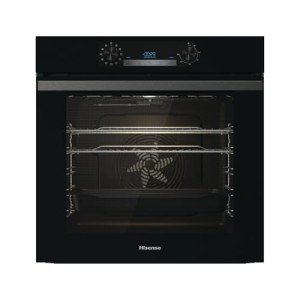7 Practical Tips For Making The Most Of Your Integrated Cooker And Hob

The Rise of Integrated Cookers and Hobs: A Comprehensive Guide
In the modern-day kitchen, effectiveness, style, and area optimization are essential considerations for property owners and striving chefs alike. Among the most significant patterns in kitchen design is the increasing appeal of integrated cookers and hobs. These appliances not just improve the cooking experience but likewise raise the visual appeals of the kitchen space. This article checks out the characteristics, benefits, features, and considerations surrounding integrated cookers and hobs, supplying readers with a detailed understanding of their advantages.
What Are Integrated Cookers and Hobs?
Integrated cookers and hobs describe cooking appliances that are built into the kitchen cabinetry, supplying a smooth appearance and making the most of using area. Integrated appliances are created to mix with the visual of the kitchen instead of standing out like conventional designs.
Types of Integrated Cookers and Hobs
Normally, integrated cooking appliances include:
- Integrated Hobs: These are cooktops that fit flush into the kitchen countertop. They can be gas, electric, induction, or a mix of these technologies.
- Integrated Ovens: Built directly into the cabinets, integrated ovens can come as single, double, or multifunctional designs, using varied cooking abilities.
- Combination Units: Some models integrate an oven and hob into a single home appliance, providing a compact solution for smaller sized cooking areas.
Advantages of Integrated Cookers and Hobs
1. Space Optimization
Integrated cookers and hobs are perfect for little kitchen locations. By embedding the cooking appliances into cabinets, house owners can utilize their kitchen area more efficiently, leaving more space for meal preparation and motion.
2. Visual Appeal
These appliances offer a streamlined and contemporary want to the kitchen. The ability to select finishes and incorporate them into the surrounding kitchen cabinetry creates a unified design that enhances the overall appearance of the kitchen.
3. Improved Functionality
Integrated cookers and hobs frequently include innovative technology functions, such as wise controls, timers, and cooking presets, improving user experience and allowing efficient cooking.
4. Boosted Safety
Lots of integrated hobs include precaution such as child locks and automated shut-off functions. This makes them safer than conventional freestanding designs, particularly in homes with kids.
5. Increased Resale Value
Modern homes with integrated appliances typically draw in higher resale values. Potential purchasers search for smooth designs and modern benefits, making integrated cooks and hobs a sensible financial investment.
Functions to Consider When Choosing Integrated Cookers and Hobs
When picking integrated cookers and hobs, numerous features should be taken into consideration:
1. Cooking Technology
- Induction: Provides quick and effective cooking, easy to tidy, and gives exact temperature control.
- Gas: Offers traditional cooking advantages with immediate heat but requires adequate ventilation.
- Electric: Provides constant heat and is available in different designs.
2. Size and Configuration
- Oven Capacity: Should be sufficient for the home's cooking needs.
- Hob Size: Depending on the variety of burners/vessels required for synchronised cooking.
3. Control Mechanisms
- Touch Controls: Provide a streamlined look and ease of cleaning.
- Knob Controls: Offer tactile feedback and are user-friendly.
4. Finish and Style
Integrated cookers and hobs come in different surfaces, including stainless-steel, black glass, and even adjustable options to match cabinetry.
5. Energy Efficiency
Choose energy-efficient models that can save on energy expenses and lower environmental impact.
Upkeep and Care
To keep the performance and durability of integrated cookers and hobs, regular maintenance is crucial:
- Clean the surface areas: Regularly clean down the hob and oven surface areas to prevent residue build-up.
- Examine seals and gaskets: Ensure that oven seals are intact for effective cooking.
- Service regularly: Schedule expert maintenance to keep the appliances in leading shape.
Frequently asked questions
1. What is the distinction in between built-in and integrated cookers?
Response: Built-in cookers are developed to be set up within kitchen cabinets, whereas integrated cookers are created to flawlessly mix with the kitchen cabinetry for a more cohesive appearance.
2. Are integrated appliances more expensive?
Answer: Generally, integrated appliances may have a higher upfront cost compared to freestanding units because of their design and the installation requirements. Nevertheless, they can provide long-lasting savings in energy effectiveness.
3. Can I set up integrated cookers and hobs myself?
Answer: While some homeowners may be able to handle the setup themselves, working with an expert is recommended to guarantee appropriate fit and function, especially for gas appliances.
4. Are integrated cookers and hobs simpler to clean up?
Answer: Integrated hobs usually have fewer crevices, making them easier to clean up. However, click through the following post cleansing requirements will depend upon the materials used in the device.
5. What should I inspect before buying?
Response: Check the size of your kitchen area, cooking needs, energy effectiveness rankings, and compatibility with existing cabinetry.
Integrated cookers and hobs are becoming increasingly preferred in contemporary cooking areas, integrating functionality with visual appeal. By understanding their advantages, functions, and upkeep requirements, house owners can make educated choices when picking the best appliances for their cooking areas. As patterns in kitchen design continue to progress, integrated cooking options will likely stay at the leading edge of home development, assuring both usefulness and style.

